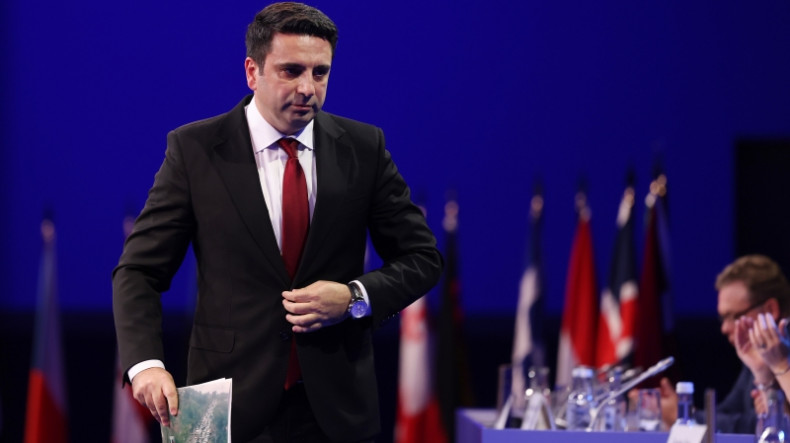
Armenia's Simonyan says not surprised that Turkey, Azerbaijan and Russia 'are often using the same rhetoric'
Azerbaijan’s actions are not confined to Nagorno-Karabakh but extend to the sovereign territories of Armenia, some of which remain under Azerbaijan’s control, Armenian National Assembly Speaker Alen Simonyan said in his remarks at the European Conference of Presidents of Parliament in Dublin on Thursday.
“Azerbaijan’s approach is to impose its preferred solutions on Armenia through force. For over three years Azerbaijan has refused to return Armenian prisoners of war and other civilians, in defiance of a ruling by the European Court of Human Rights. Moreover, since the Court’s decision, Azerbaijan has kidnapped 2 Armenian soldiers from Armenian territory, bringing the total number of confirmed POWs to 35,” the speaker said.
“I was not surprised that our Turkish colleague approved the use of military force against the Armenians of Nagorno-Karabakh. I am not surprised that Turkey, Azerbaijan and Russia are often using the same rhetoric. What I am surprised for is that they are doing so here, at the organization that is founded for protection of human rights,” he noted.
Simonyan called attention to Azerbaijan’s repeated attacks on Armenia. "In his own words, President Aliyev mused about how many messages Armenia needed to receive to get the point. “Were the 2021 and 2022 border operations not enough?” he asked. He noted that Armenia did not seem to understand the closing of the Lachin corridor, the first phase of his ethnic cleansing campaign, about 10 months ago," the parliament speaker said.
"On September 19, the next part began. Despite the presence of the Russian peacekeepers, Azerbaijan unleashed another large-scale military attack against Armenians in Nagorno-Karabakh. Hundreds have been wounded or killed; tens of thousands are being forcibly displaced.They stay in the open air, without food, healthcare, and other means of survival. As I speak, in fulfillment of Azerbaijan’s ethnic cleansing plan, the exodus of Armenians from Nagorno-Karabakh, is underway.
"It is unbelievable that this is happening today - in the 21st century - in plain sight of the world. Through its actions, which minimized international efforts to build peace and stability in the South Caucasus, Azerbaijan has called into question its fitness to be a member of the Council of Europe. The Council of Europe should be actively engaged in the protection of human rights in the most challenging conflicts. It should be a priority for the Council of Europe to protect the rights of everyone within the geographic scope of the Council of Europe, and this includes Nagorno-Karabakh. Armenia remains committed to achieving a just and lasting peace in the region. We hope that the October 5th meeting in Granada, Spain of the leaders of Armenia, Azerbaijan, Germany, France, and the EU on the sidelines of the Third European Political Community Summit will be a step forward.
"Armenia strongly endorses the approach to peace agreed to by Prime Minister Pashinyan and President Aliyev and articulated by the President of the European Council, Charles Michel. We welcome future transport arrangements that respect the principles of sovereignty, jurisdiction, and reciprocity. We call on the international community, including the Council of Europe, to support this process. Today, a hybrid war is being waged by certain countries against Armenia.Its goals are twofold: overthrow the democratically elected government and discredit the notion of representative democracy itself. Democracy, the rule of law, respect for human rights, and peaceful co-existence are the pillars upon which humankind should live in peace and harmony. This is true not only within democratic states individually but also among them collectively. Together - and perhaps only together - can we prevail over the troubles of our time. The center must hold," he noted.
Newsfeed
Videos






























